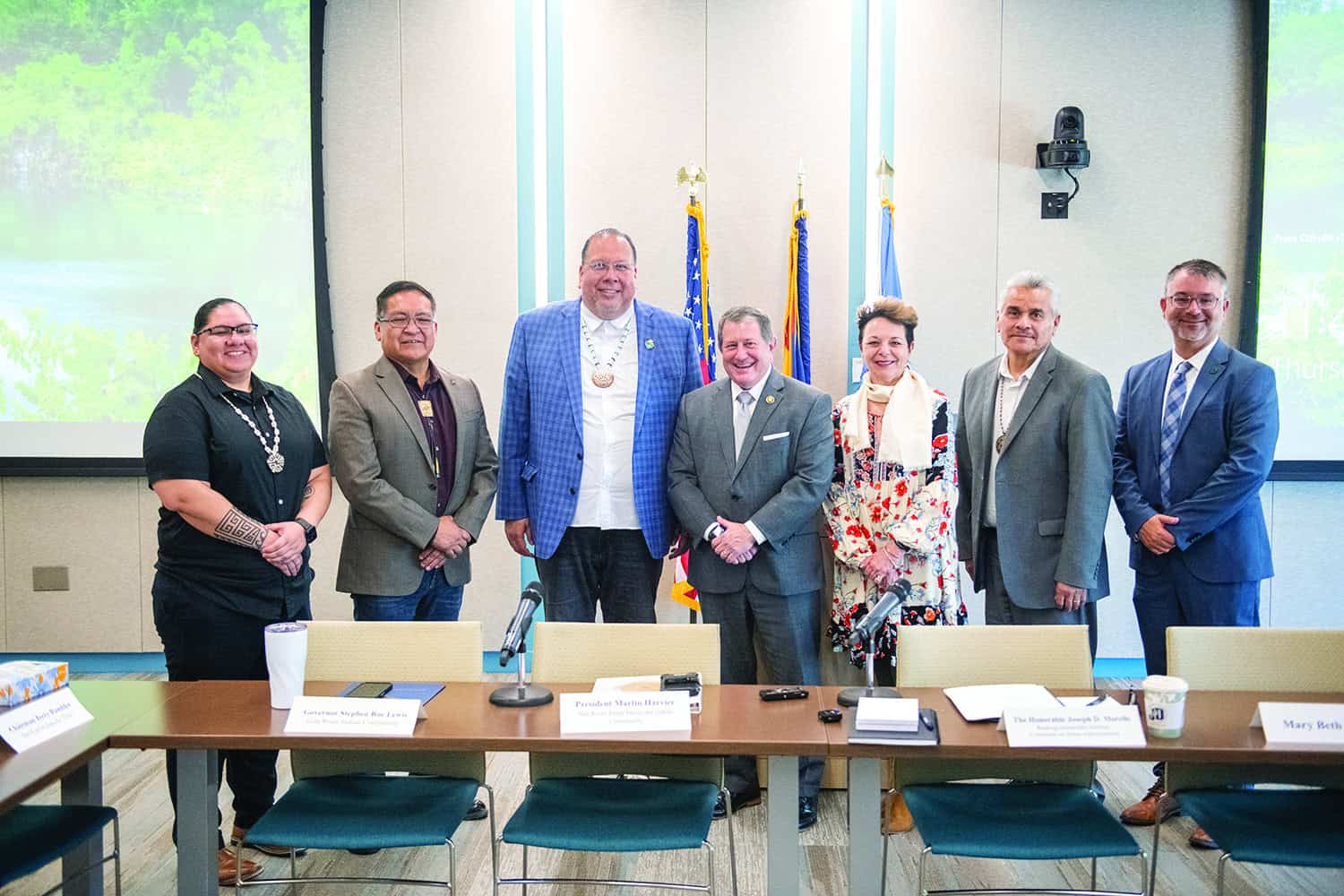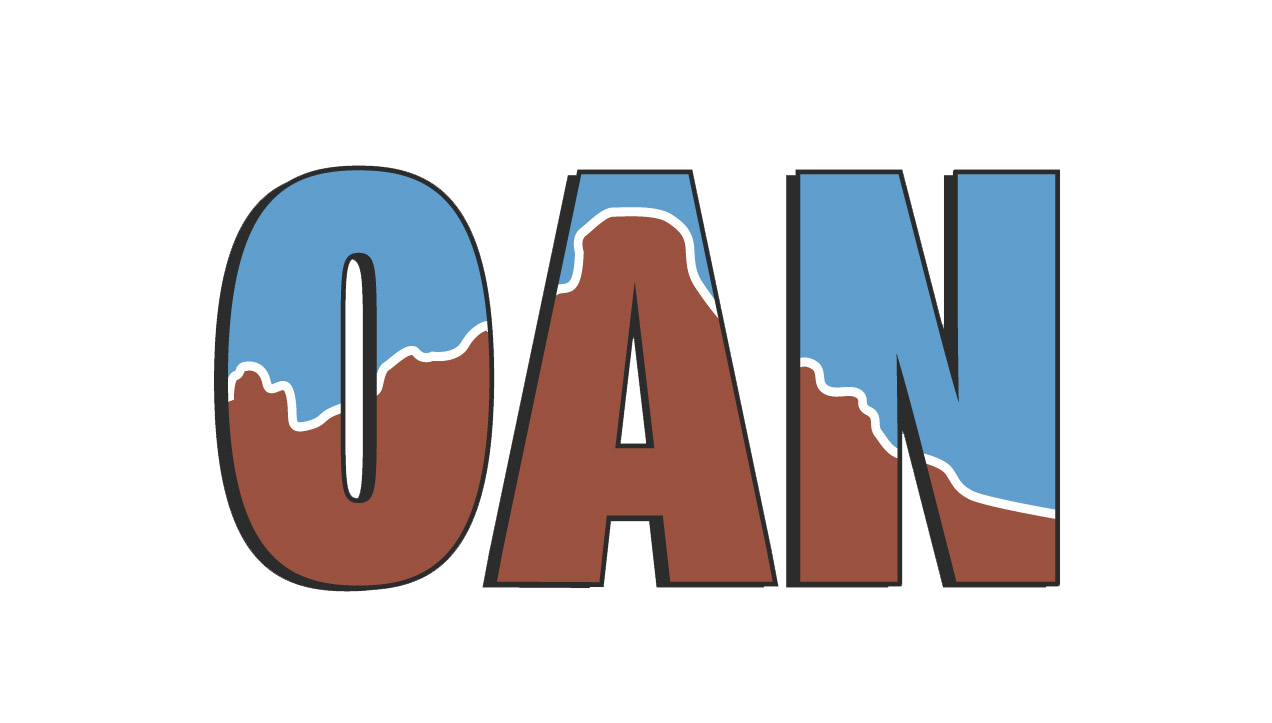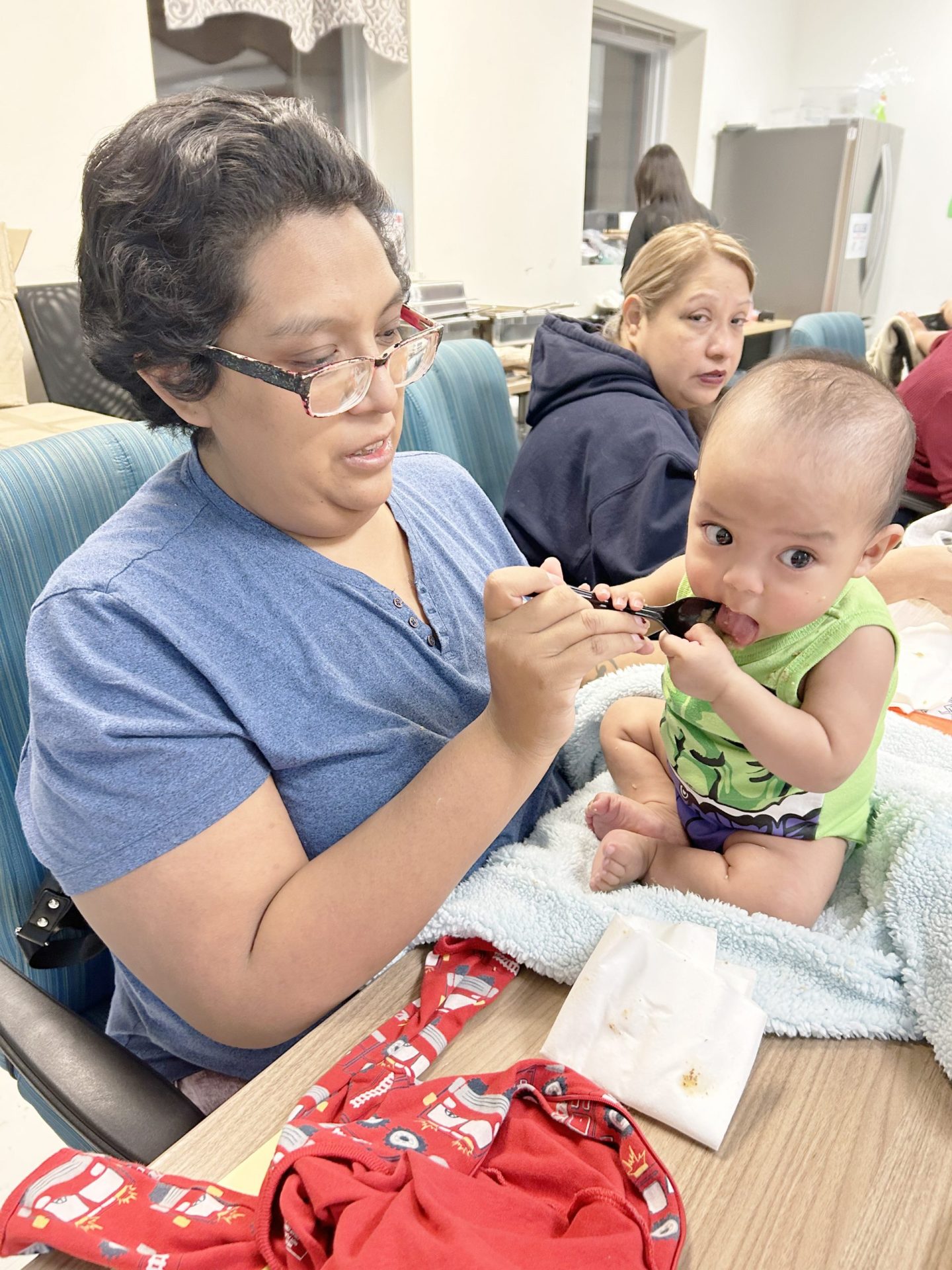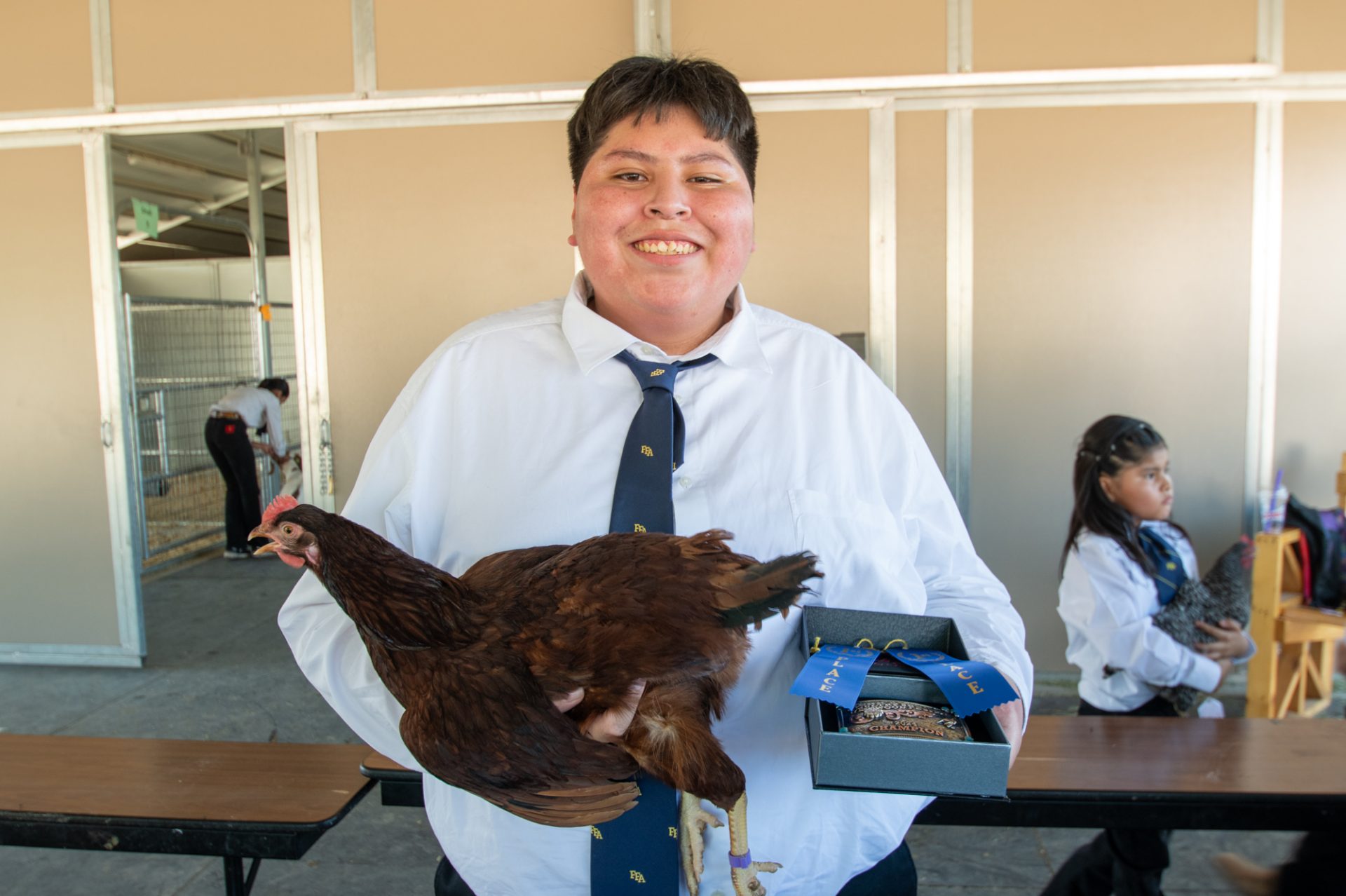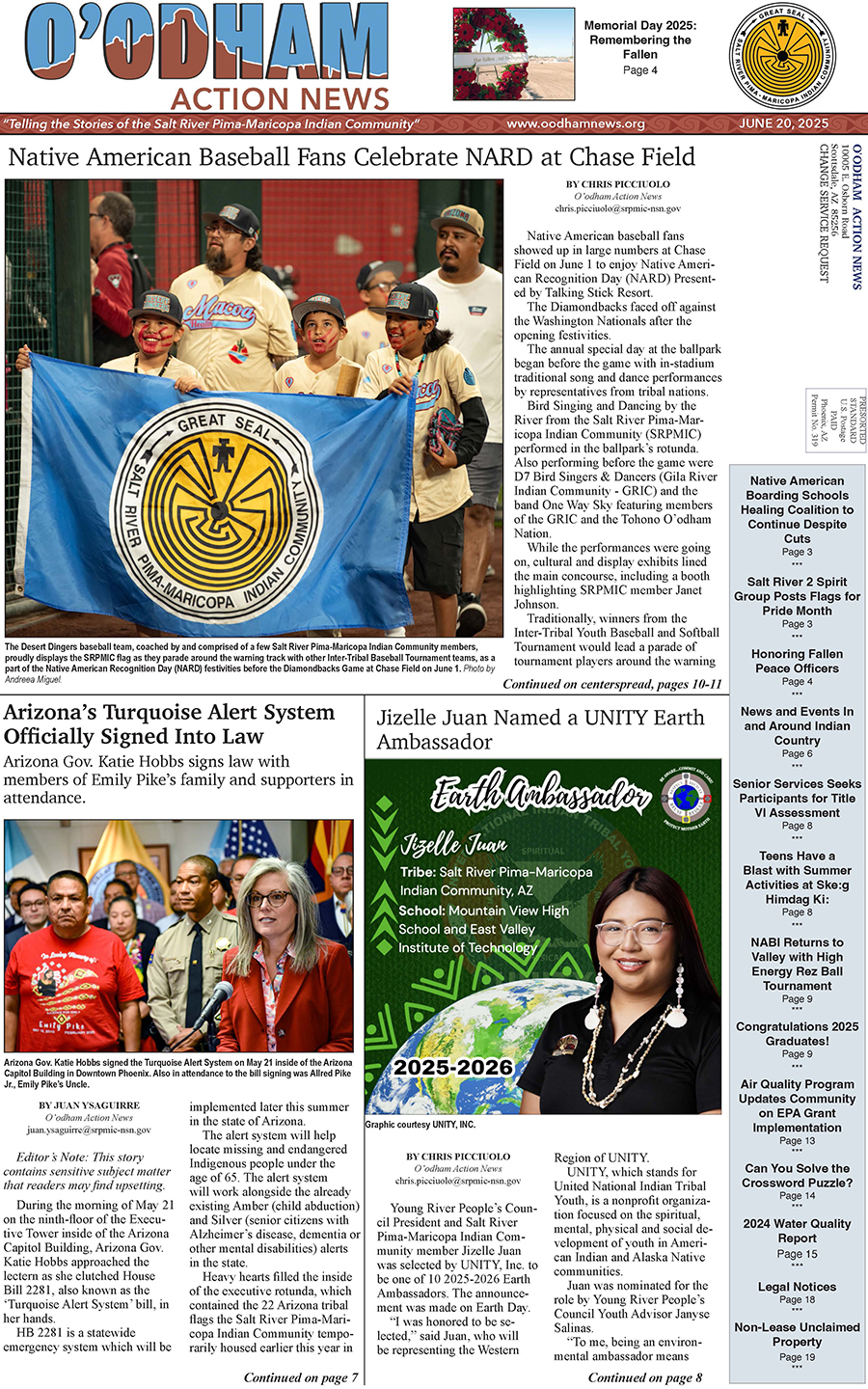VIEWS: 876
April 2, 2024Congressman Morelle, Tribal Leaders Convene for Voting Rights Discussion at SCC
On February 22, the Salt River Pima-Maricopa Indian Community and Scottsdale Community College welcomed Arizona tribal leaders and U.S. Congressman Joseph Morelle (D-25 NY), ranking Democratic member of the Committee on House Administration, to SCC’s Indigenous Cultural Center to discuss voting rights in Arizona and across Indian Country.
The purpose of the discussion was to hear statements from tribal leaders on the history of the vote since the Indian Citizenship Act of 1924, also known as the Snyder Act, which was signed into law by President Calvin Coolidge on June 2, 1924. The 100th anniversary of the Act is coming up this year, and the minority side of the Committee (Democratic) plans to use the material from the discussion to release a report either on or close to the anniversary.
Although the Snyder Act was passed in 1924, Native American voters in Arizona still were barred from voting because the state considered Native Americans to be “under guardianship” and wards of the federal government. At the time, the court defined “under guardianship” as persons who basically lacked the understanding and capacity to vote, according to Gila River Indian Community Governor Stephen Lewis, who spoke at the discussion.
“In Arizona, it was our own Gila River Indian Community members Peter Porter and Rudolf Johnson who brought litigation after they were denied the right to register to vote in Pinal County,” Lewis told Morelle. “When they attempted to vote, they were turned away by the county recorder.
It wasn’t until 1948, when the Arizona Supreme Court overturned Porter v. Hall, that Native Americans in the state of Arizona could vote, after Fort McDowell Yavapai members Harry Austin and Frank Harrison successfully challenged the 1924 decision.
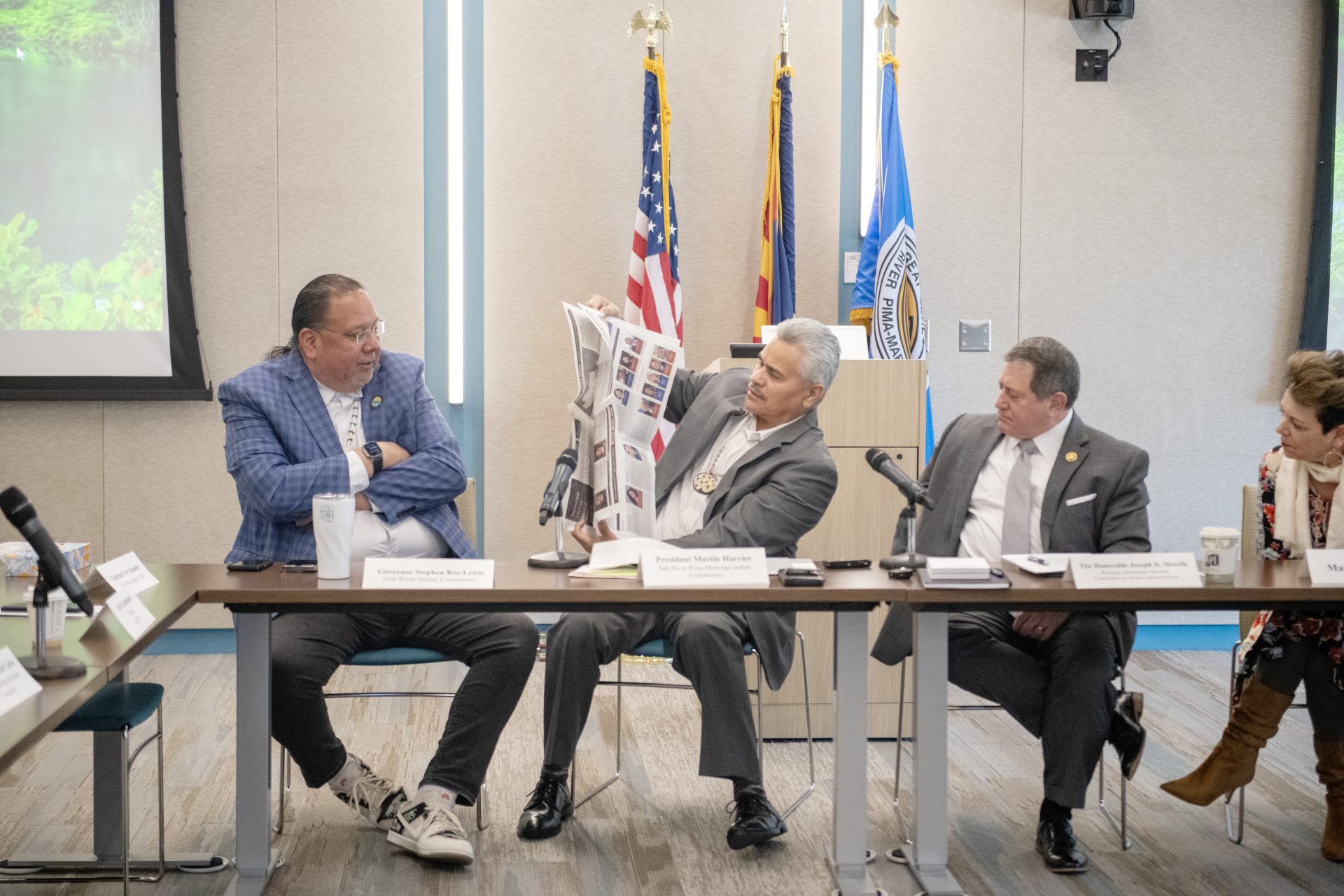
“Our purpose here today is both solemn and sacred,” said Morelle. “We believe fundamentally that the right to vote is the most precious of all rights we have and that all rights flow from it. If people don’t have the right of self-governance, if people don’t have the right to participate fully and to make sure that their vote is counted, then it calls into question all the other rights that we all share as Americans.
Morelle continued, “It’s striking to me that almost a century after Native citizenship, many have yet to enjoy its full privileges.” Morelle went on to say that even though there has been formal recognition of Native American voters in Arizona, there are still barriers preventing Native Americans from having access to the ballot.
SRPMIC Council Member Mikah Carlos used her discussion time to talk about recent instances of voter intimidation at local polling places and her own experiences attempting to vote.
“My experience with voting issues goes back to 2016. I went to vote with my tribal ID and I was told by a poll worker that I couldn’t use it,” said Carlos. “I had to sit there and look up the actual poll laws and show them and say, ‘Well, it says right here legally I’m allowed to use this.’ And they’re telling me I still can’t, until another poll worker intervened.”
As recently as last year, Carlos voted with her tribal ID and was told by a poll worker that she was inconveniencing them because she wasn’t using a state ID that they can scan.
SRPMIC President Martin Harvier gave Morelle a copy of a 2015 Arizona Law Journal book, The History of Indian Voting Rights In Arizona: Overcoming Decades of Voter Suppression, which Morelle said he will add to his personal collection.
“With Congress passing the Voting Rights Act in 1965, overcoming the imposed literacy requirements put on Natives and overcoming county opposition by placing polling locations in tribal communities and many other areas where it made it difficult for Native citizens to vote, going forward I hope that with these discussions we make it easier for Native Americans to vote,” said Harvier.

